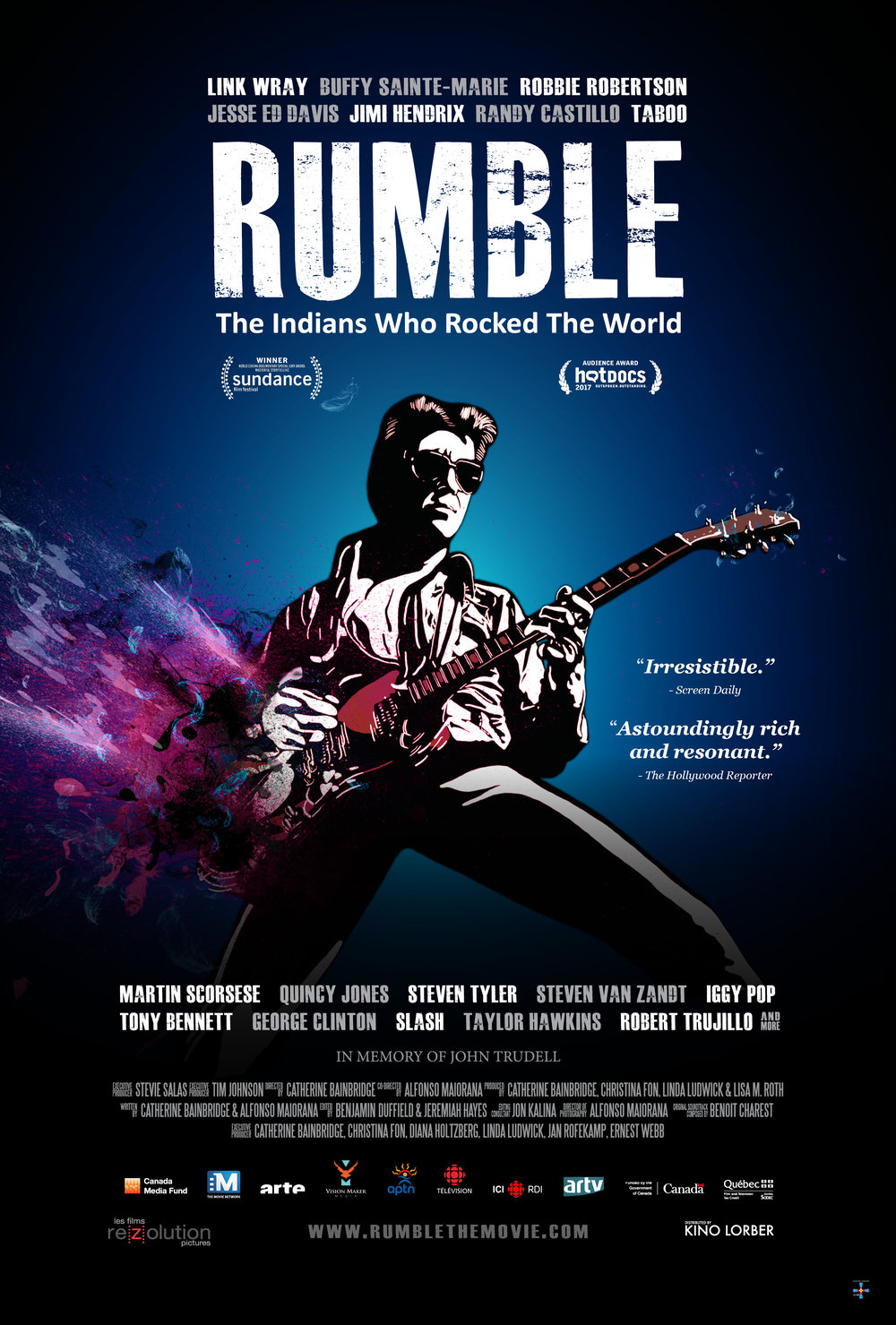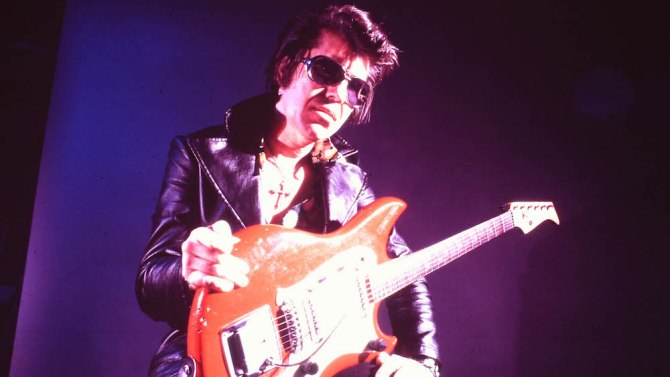Rumble: The Indians Who Rocked The World (2017)


SHOULD I SEE IT?
YES
A subject long overdue for a film treatment, the influence Native American and Indigenous people have had on popular music is staggering...and no longer ignored.
An impressive of array of experts from a diverse entertainment landscape lend weight and heft to the film's message.
Episodic, the film feels like a small-scale miniseries, with great musical moments and engaging details peppered in throughout.
NO
However, that episodic nature dilutes the film's power, as the movie feels a bit choppy and uneven at times.
Co-directors and writers Catherine Bainbridge and Alfonso Maiorana struggle to make everything in the film feel cohesive. Individual moments are strong, the totality of the message is a bit diluted by the end.
You are not a fan of contemporary music. Or you just have no interest in documentaries about such topics, and/or you never think twice about the influences on the music you stream each and every day.
OUR REVIEW
Rock and roll changed forever with three distinctive chords, strummed on a whim, in a gymnasium, circa 1957. Those chords made up the backbone of an improvised instrumental, played by a house band filling time for a DJ on a break. Soon, the world would know that track as "Rumble," performed by Link Wray and the Wray Men, and the song would prove to be an absolute game changer for popular music.
The Who's Pete Townsend is on record as saying that 'Rumble" made him pick up a guitar and never put it back down. Bob Dylan cited it as a significant influence on his career, and Led Zeppelin's Jimmy Page looks downright giddy, listening to the track in Davis Guggenheim's 2008 documentary It Might Get Loud. Hundreds, if not thousands of musicians have made mention that "Rumble" left not just an indelible mark on them personally, but also altered the way in which they listened to and heard music.
While "Rumble" only peaked at #16 on the Billboard singles chart in the summer of 1958, in part because it was banned on the radio in major markets for fear that it's "instrumental sound" would incite teenage gang violence, part of "Rumble"'s legacy exists in its creation by a Shawnee Native American from North Carolina. Fred Lincoln "Link" Wray was rock music's first Native American star. Now, nearly 60 years after his song introduced the concept of power chords and changed the course of rock and roll forever, it shares a title with this new documentary exploring Wray and other Native American musicians' influence on contemporary music.
Director Catherine Bainbridge opens Rumble: The Indians Who Rocked the World with an in-depth look at the man, the song, and the legacy. Gathering an impressive array of musicians, actors, directors, journalists and musicologists, and Native American performers themselves, she lays out a case for several individuals to be recognized, overlooked and ignored for their shaping of modern music.
Arranged as something of an episodic miniseries, though running at a feature-length film's 103 minutes, Rumble pivots to the work of folk singer Charley Patton and jazz singer Mildred Bailey after closing the book on Wray. Bainbridge, who co-wrote and co-directed the film with Alfonso Maiorana, wants to take us on a journey - similar to PBS' excellent and expansive 2001 documentary series "American Roots Music." Curiously, each segment stands alone, and connections between the musicians, songs, and stories are threadbare at best. Some stories make an impact, others not as much.
Even with stories that may underwhelm or slow the film's rhythm, Rumble still offers moments of jaw-dropping revelation and observation. Bainbridge unearths stories documenting how Native American performers would hide their heritage to avoid oppression and racism. Mixed race African-American and Indigenous performers would often present as black, a much more favorable societal identifier, even within a racially divided and segregated America.

In something of a lighter tone, but equally as stunning, singer Pura Fé, a vocalist with a women's acapella trio, Ulali, offers examples of how popular songs channel rhythms, arrangements, and vocal delivery from the blueprint of Native American music.
When you have appearances from Martin Scorsese, legendary musician Robbie Robertson, and even the iconic Tony Bennett himself, to name a select few, one easily recognizes that the filmmakers have tapped into a noteworthy and significant topic.
And yet the film feels less a theatrical excursion and something more like a sizzle reel or pilot episode of a new television series. Rumble could easily explore deeper and dig further, but Bainbridge is content with allowing each story to take 15-20 minutes or so and pivoting to another artist's experience. This makes for an interesting enough film, but dulls the collective impact that Bainbridge and Maiorana are aiming to deliver.
Despite some structural issues, Rumble: The Indians Who Rocked the World is a solid, entertaining film which will make audiophiles swoon, others angry at how such rich, dense culture and heritage has been so ignored, and even the casual music fan able to appreciate the music they hear in a whole new light.
Three power chords may have changed the course of music forever, but it took a Canadian documentarian to remind us how much of our heralded American music is, and was, built on the creativity of Indigenous people's cultural contributions.
CAST & CREW
Documentary Featuring: Robbie Robertson, Buffy Sainte-Marie, John Trudell, Pat Vegas, Martin Scorsese, Tony Bennett, Pura Fé, Steven Van Zandt, Iggy Pop, Taj Mahal, Adam Beach, Slash, Steven Tyler.
Director: Catherine Bainbridge
Co-Director: Alfonso Maiorana
Written by: Catherine Bainbridge, Alfonso Maiorana
Release Date: August 25, 2017
Kino Lorber
